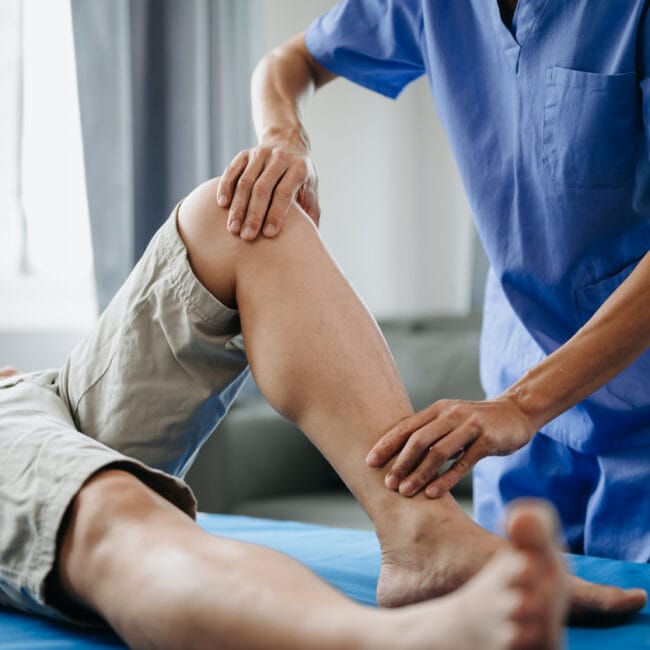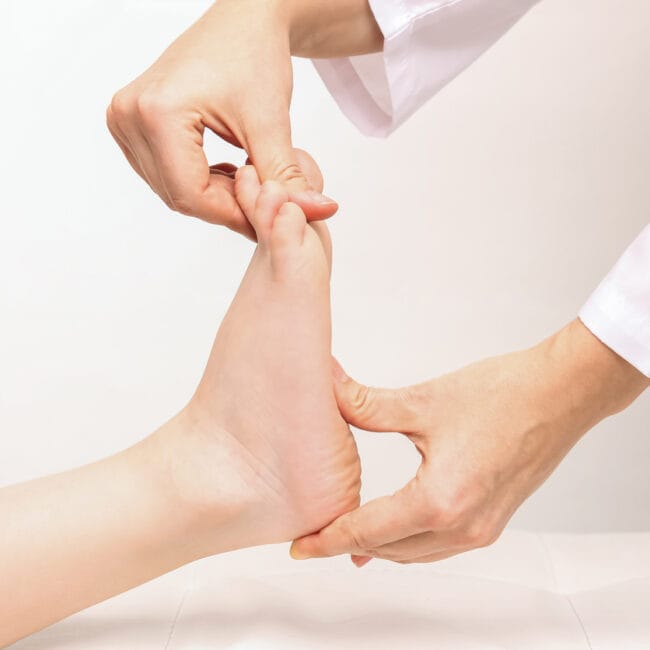Obesity is an issue that is becoming increasingly prominent in almost every developed nation, and Ireland is no exception.
In 2015, 23% of people in Ireland were classified as obese, with a further 37% being classified as overweight. In fact, Ireland is estimated to become the most obese country in Europe by 2030, with 89% of men and 85% of women expected to be either obese or overweight according to a recent study by the World Health Organisation.
We are all aware that obesity has negative effects on our bodies, but most of this focus is directed at issues such as heart disease and diabetes.
The reality is that obesity affects the entire body, and its effects on our feet are largely overlooked. Here are some of the biggest consequences of obesity on our feet.
The first and perhaps most obvious effect that obesity will have on our feet is that it places a far greater amount of weight on them when we stand or move about.
This results not only in placing immediate physical stress on the skin and bones in our feet, but also physically alters them over time.
Fallen arches are a common side-effect of obesity, and can lead to long term pain, as well as a number of other problems.
This is a result of both the extra weight that is being placed on the feet, as well as the fact that obesity wears down shoes at a much faster rate than usual.
Similarly, obesity will often result in pronation, which is itself often a result of fallen arches.
Pronation is a condition where people stand or walk not with their feet flat on the ground, but slightly on the side.
This pushes the heels outwards and our ankles closer together. This is enormously common with very loose shoes such as Ugg boots.
If untreated, fallen arches and pronation will lead to a wide number of other problems very quickly. Swelling of the ligament that connects the heel to the toes is the most common side effect of obesity on feet, resulting in sharp pain throughout the foot.
This, as well as the extra weight associated with obesity, soon results in pain extending up the leg, particularly in the shin.
Ultimately, the knees, hips, and back are all affected, which results in severe and chronic pain throughout most of the body.
All of these factors combined then affect how we walk, sit, sleep, and generally hold ourselves, which will usually result in further pain and complications.
The combination of the extra weight, pain, and exhaustion makes it far less likely that people will exercise, which then exacerbates all of the aforementioned issues.
Obese people are also more susceptible to ankle sprains, which will further decrease the amount of exercise a person does.
It is common knowledge that obesity affects our heart and blood in a number of different ways, such as diabetes and increased heart rate. These are of course issues that affect the entire body, but the feet are also some of the most adversely affected parts.
This is because they are the part of our bodies that are farthest away from our heart, and are the worst affected by circulation problems. The effects of this can range from numbness to amputation of the feet.
Obesity is a problem that affects essentially the entire body, but its effects on the feet are often ignored, despite them being so painful and potentially life-altering.
Obesity is not an issue that can be dealt with using a single-pronged approach, but if a person is serious about tackling their weight issues and looking after their body, taking care of the feet is an absolute necessity.
Wearing comfortable shoes that provide arch support and prevent pronation is the most effective way to begin, but ultimately, weight loss is the only real solution.















